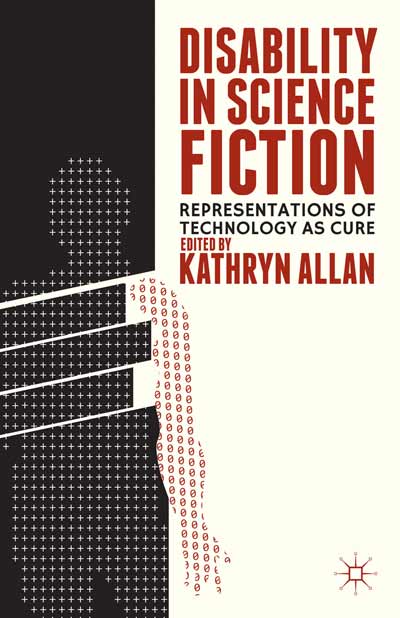Cline, Brent Walter. “Great Clumsy Dinosaurs: The Disabled Body in the Posthuman World.” In Disability in Science Fiction: Representations of Technology as Cure, edited by Kathryn Allan, 131-143. New York: Palgrave Macmillan, 2013.
 In science fiction, technology often modifies, supports, and attempts to ‘make normal’ the disabled body. In this groundbreaking collection, twelve international scholars — with backgrounds in disability studies, English and world literature, classics, and history — discuss the representation of dis/ability, medical ‘cures,’ technology, and the body in science fiction. Bringing together the fields of disability studies and science fiction, this book explores the ways dis/abled bodies use prosthetics to challenge common ideas about ability and human being, as well as proposes new understandings of what ‘technology as cure’ means for people with disabilities in a (post)human future.
In science fiction, technology often modifies, supports, and attempts to ‘make normal’ the disabled body. In this groundbreaking collection, twelve international scholars — with backgrounds in disability studies, English and world literature, classics, and history — discuss the representation of dis/ability, medical ‘cures,’ technology, and the body in science fiction. Bringing together the fields of disability studies and science fiction, this book explores the ways dis/abled bodies use prosthetics to challenge common ideas about ability and human being, as well as proposes new understandings of what ‘technology as cure’ means for people with disabilities in a (post)human future.
 Brent Walter Cline and Robert Bolton… present a roadmap for Bolling’s inward journey, exploring a variety of the book’s elements from the role of the broken body to various spiritual connections.
Brent Walter Cline and Robert Bolton… present a roadmap for Bolling’s inward journey, exploring a variety of the book’s elements from the role of the broken body to various spiritual connections.

